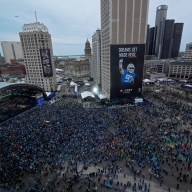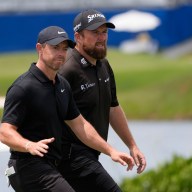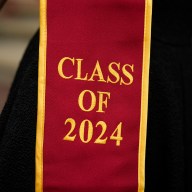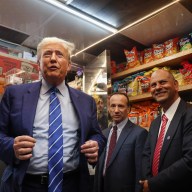 Danny Huston lounges around as a Miami gangster on “Magic City.”
Danny Huston lounges around as a Miami gangster on “Magic City.”
Credit: Starz
Danny Huston’s acting career didn’t take off until he was nearly 40, but it was inevitable he’d get around to it sooner or later. After all, he comes from Hollywood royalty: His father John, grandfather Walter and half-sister Anjelica are all Oscar winners. (He has, however, been directing films and TV since he was in his 20s.) Having stolen scenes in “Birth,” “The Constant Gardener” and “The Proposition,” he can now be seen as fearsome gangster Ben “The Butcher” Diamond on the 1950s Miami show “Magic City,” which just began its second season on Starz.
What attracted you to your character?
There’s a fallen emperor quality about Ben Diamond, where he’s sort of biding his time — languishing around a pool, fulfilling his sexual depravity. But there’s also a shrewd businessman there, someone who wants to get things going. There’s a certain honesty to Ben Diamond, believe it or not. He is who he is. He’s not ashamed.
You’ve played villains before, but Ben seems to be the most villainous. Only your character in “The Proposition” is worse.
The key to playing a villain — and this might be obvious — is to find the humanity in them. Nobody regards themselves as villainous or all that bad. In the case of Ben Diamond, I thought I would give that up. [Laughs.] I would play him for the badass that he is. Somehow I find that endearing. In “The Proposition,” Arthur Burns has a similar quality, where in a way violence is almost like his mistress.
This is one of your only steady TV gigs. What made you want to work on television?
I worked with Tom Hooper on “John Adams,” as Samuel Adams. That’s when I realized there’s a real scope here, that you can actually tell your story. It’s not necessarily that three acts are limiting. There’s plenty of films made with the three-act structure. But there’s this room [in television] to tell a story that you can’t otherwise, possibly. Then I did [“Kevorkian”] with Al Pacino, and I realized there was this whole built-in audience. And to release something about Kevorkian theatrically, it would just be impossible.
TV acting is very different from film acting. What are some of the challenges to adjusting to it?
I find it very daunting; I feel like I’m losing control. I don’t quite know how to pace my performance — if I’m revealing too much or too little. It makes me unsteady. But I know that I’m in good hands. I know that I’m working with someone [showrunner Mitch Glazer] I respect. I’d hate to be in a different situation. The only thing I found tricky was changing directors. We’re all the same, but suddenly there’s one guy who’s the new guy.
Glazer is a longtime friend of yours. What is it like working with a pal?
I come from a family where we encourage nepotism. [Laughs.] So there’s nobody better to be working with family or friends. As long as you respect them, as long as you want to serve their vision, then it’s all good.
















